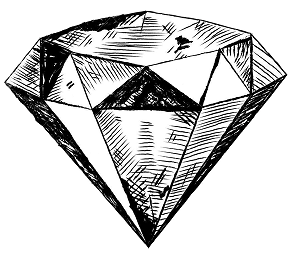COCI '21 Contest 5 #2 Dijamant
View as PDF
Lovro has a table of . or #. By
rotating a square by #,
while its inside must be completely filled with . and it must be nonempty. Outside
of a diamond, any character is allowed. Diamonds come in different sizes, and the
three smallest examples of a diamond are shown in the first sample.
Fabijan asked Lovro to tell him how many diamonds are there in the table, or else Lovro has to give him a cookie. Help Lovro by writing a program which counts the number of diamonds in his table.
Input Specification
The first line contains positive integers
Each of the next . or # which describe the table.
Output Specification
In the only line print the number of diamonds in the table.
Constraints
| Subtask | Points | Constraints |
|---|---|---|
| No additional constraints. |
Sample Input 1
7 25
.#...#....#....#.....#...
#.#..#...#.#...#....#.#..
.#...#..#...#..#...#...#.
.....#...#.#...#..#.....#
.....#....#....#...#...#.
.....#.........#....#.#..
.....#.........#.....#...Sample Output 1
3Sample Input 2
11 17
.....#........#..
....#.#........#.
...#...#....#...#
..#.....#....#.#.
.#....#..#....#..
#....#.#..#......
.#....#..#.......
..#.....#........
...#...#.........
....#.#..........
.....#...........Sample Output 2
1Explanation for Sample Output 2
There is only one diamond in the table (the one with the smallest possible size). There appears to be another diamond containing it, but it is not considered a diamond because its inside is not completely filled with .. The shape on the right side of the table is also not a diamond because it's missing a # character on its edge.
Sample Input 3
5 11
##.#.#.#.##
#.#.#.#.#.#
.#.#.#.#.#.
#.#.#.#.#.#
##.#.#.#.##Sample Output 3
14
Comments
are there any problems that similar to this?
here's a similar problem: https://dmoj.ca/problem/wac2p3